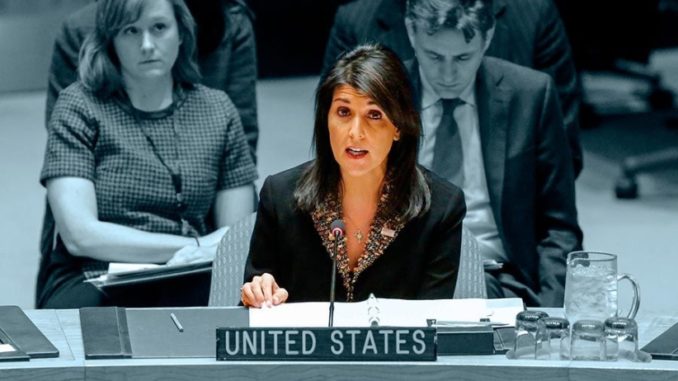
(TibetanReview.net, Jun22, 2018) – Apart from human rights organizations, a number of governments have expressed disappointment with the US government for the announcement Jun 19 of its immediate withdrawal from the United Nations Human Rights Council at Geneva.
“It is bad news, it is bad news for this council, it is bad news I think for the United Nations. It is bad news, I think for the United States, it is bad news for everybody who cares about human rights,” Reuters Jun 20 quoted Slovenian President Borut Pahor as saying to the 47-member forum in Geneva where the US seat was now lying empty.
The report likewise quoted Britain’s ambassador Julian Braithwaite as saying, “We have lost a member who has been at the forefront of liberty for generations. While we agree with the US on the need for reform, our support for this Human Rights Council remains steadfast, and we will continue to advance the cause of reform from within its ranks.”
And Bulgaria’s Ambassador Deyana Kostadinova, speaking on behalf of the EU, has said the United States had been a “strong partner” at the talks. She therefore felt that its decision “risks undermining the role of the US as a strong advocate and supporter of democracy on the world stage.”
China’s foreign ministry has expressed regret, with state media saying the image of the United States as a defender of rights was “on the verge of collapse”.
The report cited diplomats as saying the US withdrawal could bolster Cuba, Russia, Egypt and Pakistan, which resist what they see as UN interference in sovereign issues.
And it cited the Tibet Advocacy Coalition, whose activists seek to raise attention to the situation in Chinese ruled Tibet, as saying in a statement that the US decision “will allow China much more room to obfuscate and undermine the UN human rights system”.
New Zealand, Canada and the Netherlands and the possible candidates to fill the seat vacated by the US in the council.
The United States said it was withdrawing from what it called the “hypocritical and self-serving” forum over what it saw as a bias against its close ally Israel and a lack of reform after a year of negotiations.





